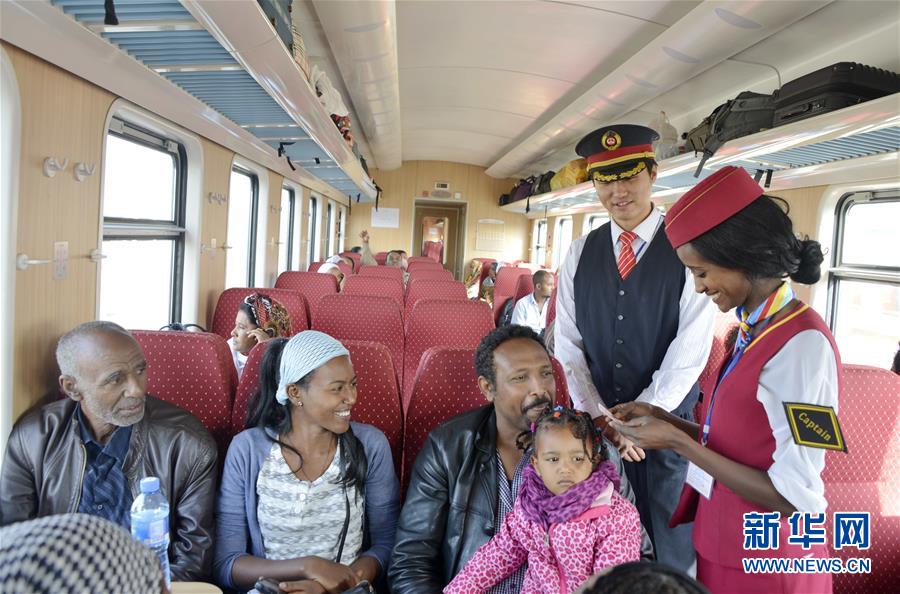


The international situation has undergone tremendous changes since the Forum on China-Africa Cooperation (FOCAC) was established in 2000. Over the years, China and Africa have played bigger roles in the international political and economic landscape.
After the FOCAC summits in Beijing in 2006 and in Johannesburg, South Africa in 2015, the two-day meeting in Beijing this time, which is scheduled to kick off on Sept. 3, would be another grand family gathering for China and African countries.
Being the largest diplomatic event held by China this year, and the one that will be attended by the largest number of foreign leaders, the Beijing summit is bound to create new history.
Over the past years of development, the FOCAC has gradually upgraded its level. It has evolved from a transactional and regional forum into one that deals with strategic and global issues.
Numerous African leaders and the chairman of the African Union (AU) will attend the summit, as well as the United Nations Secretary-General as the special guest and 27 international and African groups as observers.
Currently, some countries are practicing unilateralism, protectionism and trade hegemony. Against such a backdrop, the upgrade of the forum by far-sighted Chinese and African leaders demonstrates the strategic importance of China-Africa ties.
In addition, the forum also expanded its effects over the past years. Despite the limited economic scale of Africa and China’s status as a developing country, China-Africa cooperation has realized the effect of “one plus one is greater than two”, creating huge influence on international pattern.
The establishment of the FOCAC successfully protected China’s rejuvenation from being hindered by western countries’ slanders. Over the years, China and Africa have been sincere and honest to each other.
Africa’s economy has been growing along with China’s rise, and most of the capital for the continent’s infrastructure construction comes from China. About a quarter of China’s international engineering contract projects are in Africa, and 1/5 of the gasoline consumed by Chinese people comes from Africa.
It is believed that the success of the Beijing summit will once again demonstrate the strong vitality of China-Africa unity and cooperation, boost the sound momentum of the overall development of the developing countries, and gather the righteous power from the international community to promote peaceful development.
Besides, the FOCAC has seen improved influence. Over the past 18 years since its establishment, the forum has been sticking to the principle of “seeking shared benefits through extensive consultation and joint contribution” and persisting in equal, pragmatic and efficient cooperation.
Under the framework of the FOCAC, the China-Africa cooperation has achieved remarkable results, winning recognition from both African people and the international community.
So far, the FOCAC has grown into a flagship of China-Africa cooperation, and a banner that leads Africa’s cooperation with the rest of the world and promotes South-South cooperation. It has brought tangible benefits to both Chinese and African people.
As the international situation is going through profound changes, the world is expecting the FOCAC Beijing summit to advance China-Africa cooperation and realize the dreams of the two sides.
(By Wang Hongyi, an associate researcher at the Institute of West-Asian and African Studies, Chinese Academy of Social Sciences.)

 Award-winning photos show poverty reduction achievements in NE China's Jilin province
Award-winning photos show poverty reduction achievements in NE China's Jilin province People dance to greet advent of New Year in Ameiqituo Town, Guizhou
People dance to greet advent of New Year in Ameiqituo Town, Guizhou Fire brigade in Shanghai holds group wedding
Fire brigade in Shanghai holds group wedding Tourists enjoy ice sculptures in Datan Town, north China
Tourists enjoy ice sculptures in Datan Town, north China Sunset scenery of Dayan Pagoda in Xi'an
Sunset scenery of Dayan Pagoda in Xi'an Tourists have fun at scenic spot in Nanlong Town, NW China
Tourists have fun at scenic spot in Nanlong Town, NW China Harbin attracts tourists by making best use of ice in winter
Harbin attracts tourists by making best use of ice in winter In pics: FIS Alpine Ski Women's World Cup Slalom
In pics: FIS Alpine Ski Women's World Cup Slalom Black-necked cranes rest at reservoir in Lhunzhub County, Lhasa
Black-necked cranes rest at reservoir in Lhunzhub County, Lhasa China's FAST telescope will be available to foreign scientists in April
China's FAST telescope will be available to foreign scientists in April